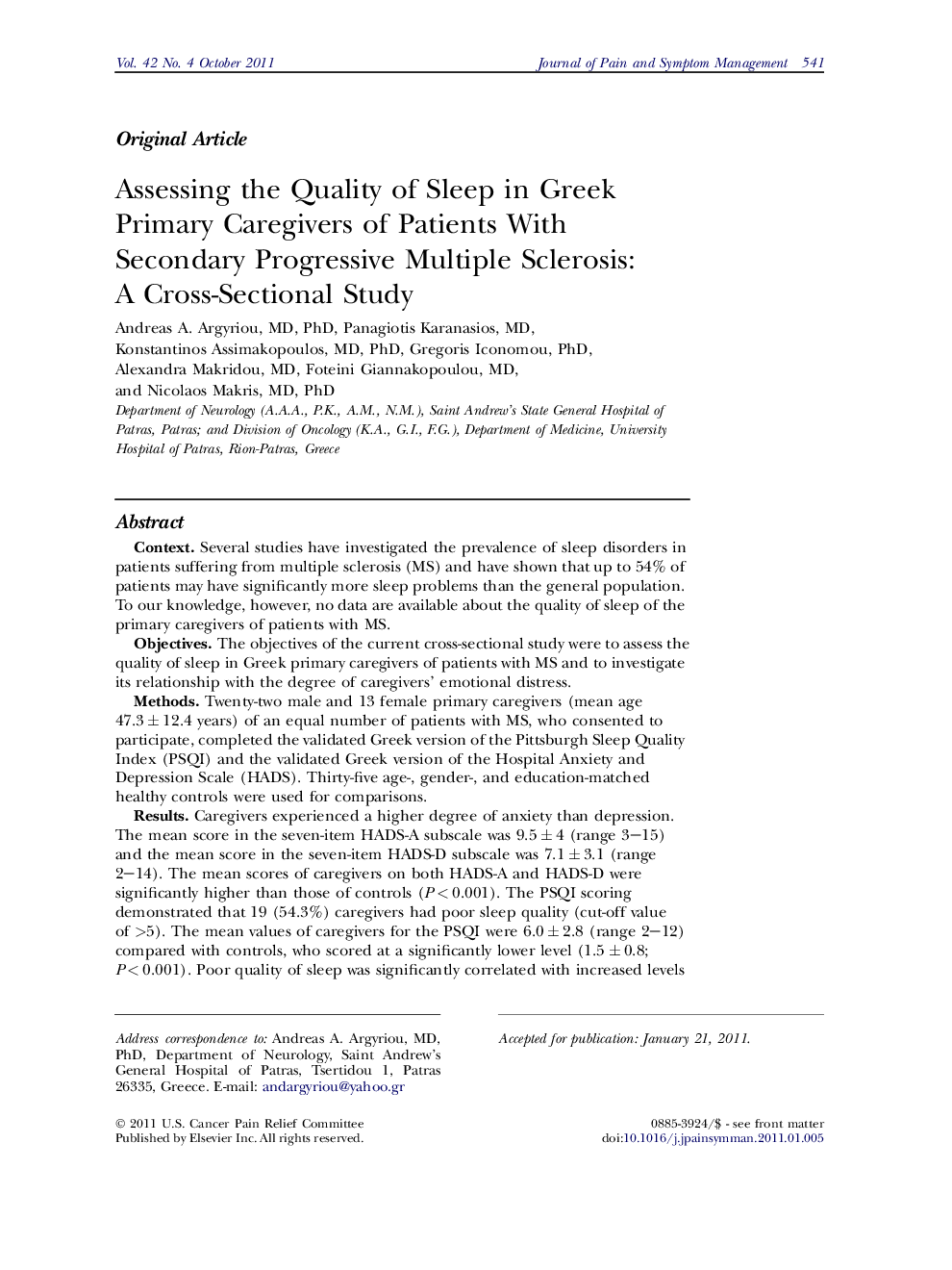| کد مقاله | کد نشریه | سال انتشار | مقاله انگلیسی | نسخه تمام متن |
|---|---|---|---|---|
| 2734542 | 1147670 | 2011 | 7 صفحه PDF | دانلود رایگان |

ContextSeveral studies have investigated the prevalence of sleep disorders in patients suffering from multiple sclerosis (MS) and have shown that up to 54% of patients may have significantly more sleep problems than the general population. To our knowledge, however, no data are available about the quality of sleep of the primary caregivers of patients with MS.ObjectivesThe objectives of the current cross-sectional study were to assess the quality of sleep in Greek primary caregivers of patients with MS and to investigate its relationship with the degree of caregivers' emotional distress.MethodsTwenty-two male and 13 female primary caregivers (mean age 47.3 ± 12.4 years) of an equal number of patients with MS, who consented to participate, completed the validated Greek version of the Pittsburgh Sleep Quality Index (PSQI) and the validated Greek version of the Hospital Anxiety and Depression Scale (HADS). Thirty-five age-, gender-, and education-matched healthy controls were used for comparisons.ResultsCaregivers experienced a higher degree of anxiety than depression. The mean score in the seven-item HADS-A subscale was 9.5 ± 4 (range 3–15) and the mean score in the seven-item HADS-D subscale was 7.1 ± 3.1 (range 2–14). The mean scores of caregivers on both HADS-A and HADS-D were significantly higher than those of controls (P < 0.001). The PSQI scoring demonstrated that 19 (54.3%) caregivers had poor sleep quality (cut-off value of >5). The mean values of caregivers for the PSQI were 6.0 ± 2.8 (range 2–12) compared with controls, who scored at a significantly lower level (1.5 ± 0.8; P < 0.001). Poor quality of sleep was significantly correlated with increased levels of anxiety (r = 0.392; P = 0.02) and depression (r = 0.424; P = 0.01). Among the PSQI components, the sleep duration and sleep latency were mostly influenced by the degree of emotional distress.ConclusionA significant proportion of primary caregivers of MS patients experience poor sleep quality. The degree of their emotional distress appears to significantly influence their quality of sleep. Appropriate psychopharmacological interventions may be required for those individuals.
Journal: Journal of Pain and Symptom Management - Volume 42, Issue 4, October 2011, Pages 541–547